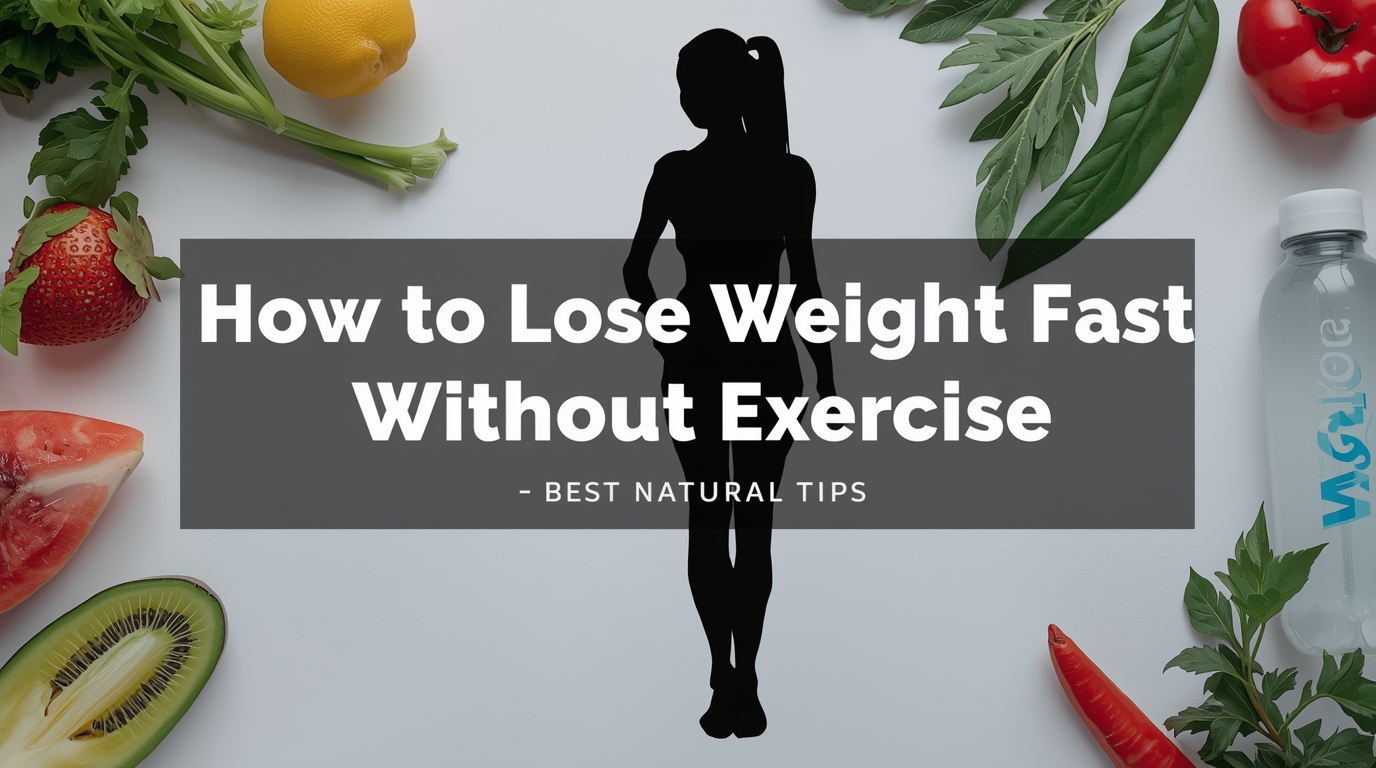
Gaining weight is often seen as an unusual goal because most people today are busy searching for ways to lose extra pounds. But the reality is very different for those who remain stuck on the opposite side of the scale. While some people dream about becoming leaner, many men and women struggle every single day to add a few kilos to their frame. For them, eating more, sleeping well, and even hitting the gym regularly often do not make much difference. Their weight refuses to move upward, leaving them frustrated and self-conscious about their appearance.For anyone who has gone through this struggle, it is important to understand one simple fact: gaining weight is not about eating junk food, gulping down sugary sodas, or overloading your plate with anything you find. Instead, it is a structured process that combines the right food choices, strength-based activities, proper rest, and a routine that keeps your body in a growth-friendly state. Just like losing weight, gaining it requires patience, planning, and dedication. There is no magic trick that transforms your body in a week, but if you follow a smart approach, you can surely start seeing results within days.Before diving into what to eat and how to train, it is useful to first understand why so many people both men and women find weight gain such a challenging journey.

Why Gaining Weight Feels So Difficult
One of the biggest misconceptions is that people who are underweight simply don’t eat enough. While that can be true in some cases, the reasons usually run deeper. Some individuals have naturally fast metabolisms, which means their bodies burn calories at a rapid rate. Even when they eat large portions, their system quickly uses up the energy for basic functions and leaves nothing extra to be stored as fat or converted into muscle.Another common factor is appetite. Many people with low weight do not feel hungry as often as others. They feel full after small meals, which makes it nearly impossible to consume the large amount of calories required to build up their body mass. Genetics also plays a big role. If your family members are naturally slim, chances are your body is wired to stay leaner too. This does not mean weight gain is impossible, but it does mean you need a smarter strategy than simply “eat more.”Lifestyle habits also affect progress. People working in physically demanding jobs or engaging in endurance-based activities like running, cycling, or sports often burn more calories than they realize. Even if they eat more than average, their bodies may still remain in a calorie deficit. On top of that, stress, lack of proper sleep, and irregular eating routines only add to the struggle. The result is constant disappointment when the weighing scale refuses to budge.
Healthy vs Unhealthy Weight Gain
When people desperately want to gain weight quickly, they often fall into the trap of eating unhealthy, calorie-heavy food like fried snacks, sugary desserts, or fast food. While this might move the scale upwards, the progress is usually short-lived and damaging. Too much junk food can lead to belly fat, digestive issues, low energy, and increased risks of diabetes or heart problems in the long run.Healthy weight gain, on the other hand, is about nourishing your body, not punishing it. The goal is not just to look bigger but also to feel stronger, more energetic, and more confident. When you focus on balanced nutrition, structured exercise, and enough recovery, you build lean muscle mass, improve your bone health, and enhance overall vitality. This kind of weight gain takes time but is sustainable and far healthier than any shortcut method
Nutrition: The Foundation of Weight Gain

Food is the most important factor when it comes to gaining weight. You cannot expect results if your diet is weak, no matter how hard you work in the gym. To gain, your body needs to stay in a calorie surplus, which simply means eating more calories than you burn. But here’s the catch: not all calories are equal. Eating random food will only make you sluggish, while eating the right kind of calorie-rich food will transform your body.Instead of sticking to just three meals, spreading food across the day works much better. A plan of breakfast, lunch, dinner, plus two to three snacks in between ensures you’re constantly feeding your body. Each meal should have the right balance of proteins, carbohydrates, and healthy fats.Protein is the building block of muscle. Without enough protein, the extra calories will simply turn into fat instead of muscle. Eggs, chicken, beef, fish, lentils, beans, paneer, tofu, and dairy products are excellent sources. For vegetarians, combining legumes with whole grains can create a complete protein profile.Carbohydrates are equally vital, not just for energy but also for muscle glycogen storage, which directly impacts strength training performance. Whole grains like oats, brown rice, quinoa, potatoes, fruits, and beans provide the necessary carbs while also delivering fiber and micronutrients.Healthy fats should never be ignored. They are calorie-dense, meaning even small amounts add significant energy to your diet. Avocados, almonds, walnuts, cashews, olive oil, peanut butter, coconut, and fatty fish are perfect additions. A spoon of peanut butter with toast or a handful of nuts as a snack can boost your calorie intake without making you feel overstuffed.One trick often recommended by nutritionists is drinking your calories. Smoothies and shakes are easy to digest and can pack hundreds of calories in one go. A blend of milk, oats, banana, nut butter, honey, and a scoop of protein powder can provide 500–800 calories in a single glass. For people who struggle with appetite, this method is a game-changer.
Exercise and Muscle Growth
It may sound strange, but exercising is absolutely essential when you’re trying to gain weight. Many underweight men and women avoid the gym thinking it will burn off the little they already have. The reality is the opposite. Without exercise, especially strength training, most of the calories you consume will store as fat instead of muscle. The real secret to healthy weight gain is combining calorie-dense food with resistance training.Compound movements like squats, deadlifts, bench presses, and pull-ups are the most effective. They target multiple muscles at once, trigger natural growth hormones, and build strength faster than isolated exercises. If you don’t have access to a gym, bodyweight routines such as push-ups, squats, lunges, planks, and resistance band exercises are still effective. The key is progression gradually increasing the intensity or resistance over time.Cardio should be limited when your focus is on weight gain. Too much running or high-intensity workouts can burn precious calories. A light jog, cycling, or walking two to three times a week is enough to keep your heart healthy without slowing down progress
Rest, Recovery, and Stress Management
Your body does not grow during workouts it grows when you rest. Sleep is where the magic of recovery happens. Without good quality sleep, all your efforts in the gym and kitchen can go to waste. Aim for at least seven to nine hours of uninterrupted rest every night. During deep sleep, the body releases growth hormones that repair muscle tissues and stimulate new growth.Stress is another hidden enemy of weight gain. High stress levels can reduce appetite, slow digestion, and affect hormone balance. Practicing mindfulness, light meditation, or simply engaging in hobbies can keep stress under control. A calm and relaxed state of mind allows your body to absorb nutrients better and build mass efficiently.
Supplements That Support the Process

Supplements should never replace real food, but they can make your journey easier when used wisely. Protein powders are the most common choice because they provide a quick, convenient way to meet daily protein requirements. A post-workout shake is one of the best ways to recover and refuel.Creatine is another safe and well-studied option. It enhances strength, improves workout performance, and speeds up recovery. Mass gainers — high-calorie blends of protein, carbs, and fats — are helpful for people who simply cannot eat enough. However, they should be chosen carefully, avoiding those filled with sugar and artificial fillers.
Tracking Progress the Right Way
One of the biggest mistakes is expecting rapid results. Many people step on the scale daily and feel discouraged when the number doesn’t jump. But gaining weight is a gradual process. Water retention, digestion, and hormonal changes can cause daily fluctuations that mean very little. Instead of obsessing, look at weekly or monthly patterns.Better indicators include how your strength is improving in the gym, how your clothes are fitting, or how energetic you feel during the day. Progress photos every two to four weeks can also show visible results that you may not notice otherwise.
Building a Sustainable Routine
The most important part of weight gain is consistency. Quick fixes may bring temporary results but rarely last. A realistic and sustainable target is to gain half a kilogram to one kilogram per week. Anything faster usually means you’re adding more fat than muscle.Meal prepping is one of the most effective strategies to stay consistent. Preparing food in advance ensures you don’t miss out on calories due to a busy schedule. Keeping calorie-dense snacks like nuts, protein bars, or dried fruit within reach makes it easy to hit your daily goals.Remember, patience is your biggest weapon. Just like losing weight takes time, building a stronger and healthier body also needs weeks and months of commitment. Every single meal, every workout, and every hour of sleep is a brick in the foundation of your new physique.

Leave a Reply